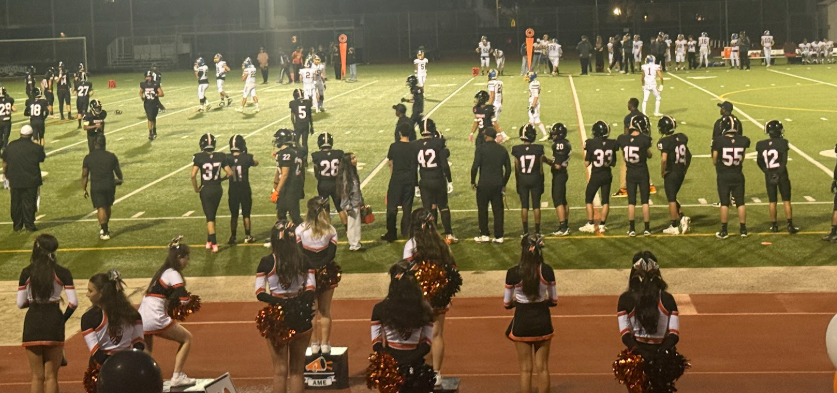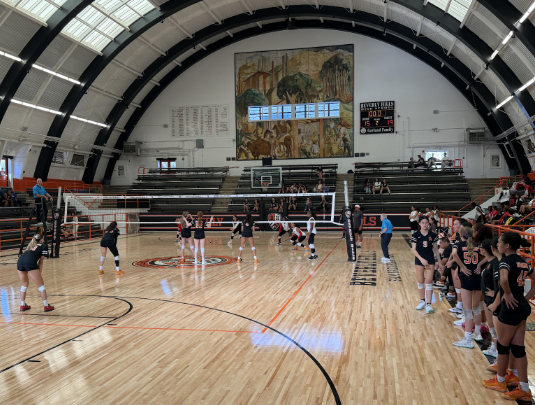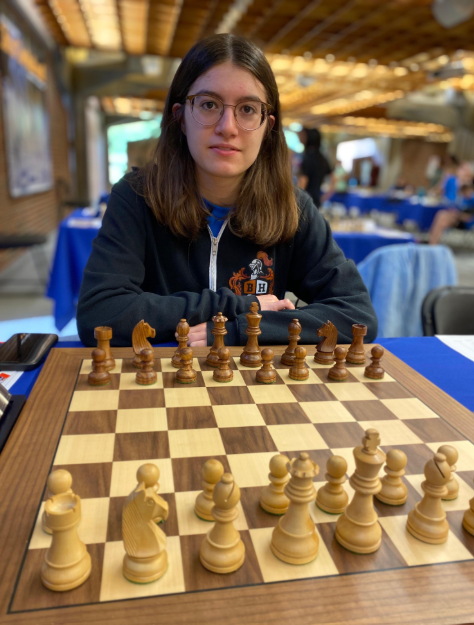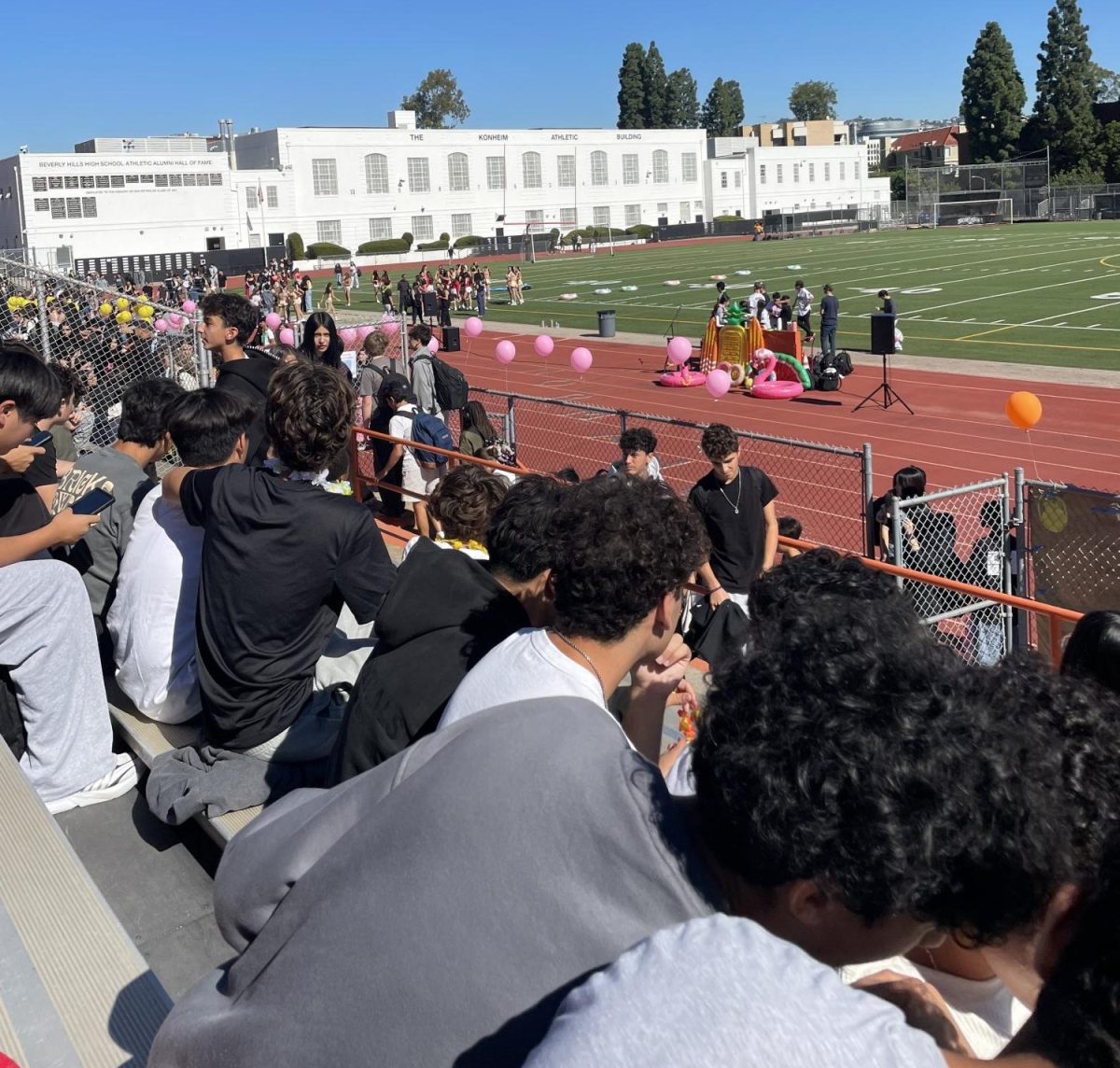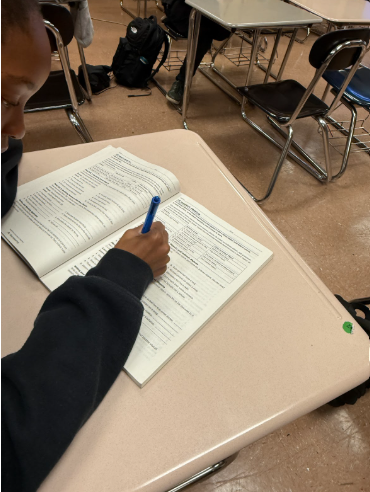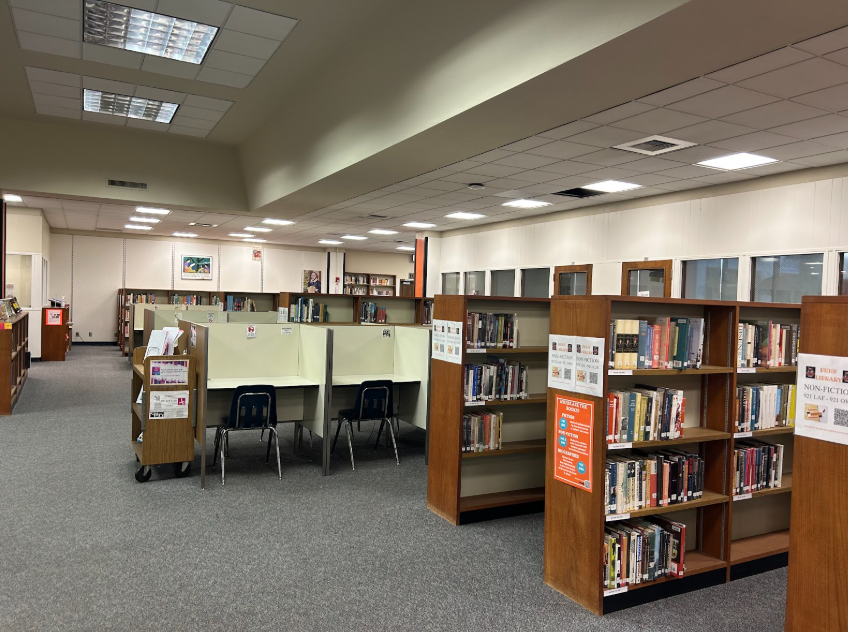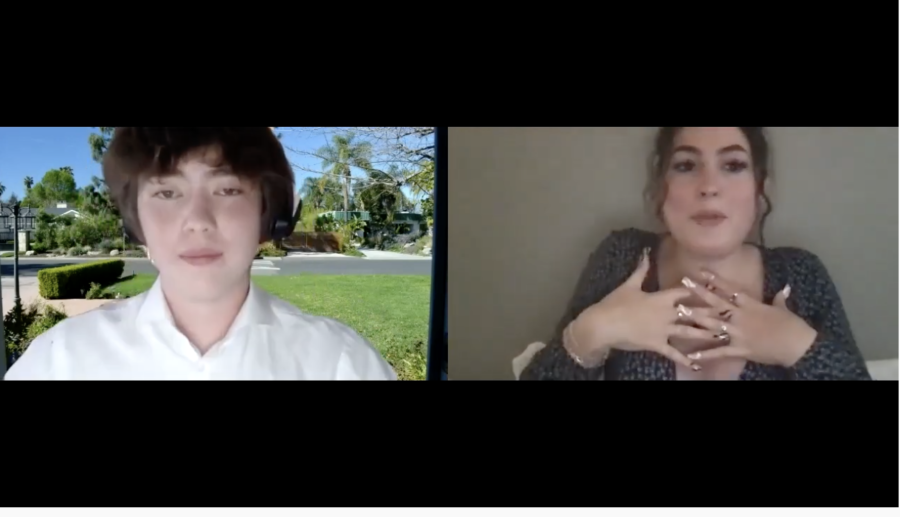Emma Newman staff writer
The Theater Art Workshop (TAW) seniors, TAW juniors, Drama Lab and Intro to Theater students will each be showcasing a different vignette-style play as their performance final for the spring semester.
The theater department broadcasted the TAW Senior show, “Love/Sick”, on May 7 and 8, and the junior show “Seven Ways to Say I Love You” on May 16. Intro to Theater will showcase their production of “10 Ways to Survive Life During Quarantine” on June 2, and Drama Lab students will put on the play “Help Desk” on June 4.
The TAW juniors, TAW seniors and Drama Lab students all had a major role in deciding which plays they would be performing.
“We read multiple plays, we talked about what we thought would go best on Zoom, what would be the best use of our time, [and] which shows would be easiest and/ or best received,” theater director Karen Chandler said. “I think that’s really cool that…the Drama Lab, TAW juniors and TAW seniors…were thoroughly involved in the process of choosing their last piece.”
Each group of students decided to choose a vignette-style play because it was an easier format to practice over Zoom. This is because, for each scene, students worked in their own breakout rooms to practice their performances.
“[Breakout rooms] allowed them to get together easily and work on lines by themselves,” Chandler said. “If somebody was absent from the class, it didn’t affect the whole class. It might only affect their scene partner. That was definitely the way to go, especially given the confusion of returning back to school.”
Love/Sick
Written by John Cariani, “Love/Sick” is a play composed of nine vignettes with two actors per vignette. Each scene is centered around a different love story.
Unlike the other end-of-the-year shows, TAW’s production of Love/Sick was pre-recorded and edited to create an entire show.
Despite the unique format of this play, specifically because it was performed over Zoom, senior Alyssa Schwartz, who played the roles of Woman and Abby, ultimately enjoyed seeing the show’s end result.
“It was definitely a difficult process because it was over Zoom, and since the show was a very physical show, we had to adapt to what we had,” Schwartz said. “[We] worked with what we got and I feel like the end product was a lot better than what I expected.”
Schwartz enjoyed having roles in two different vignettes because of the contrast between the characters.
“I feel like both [roles] were so different that I got to use my full range of being, which I never really got to do, so it was definitely very exciting,” Schwartz said.
Due to the range of these roles, she equally enjoyed performing in each vignette.
“One was just so energetic and exciting. The other one was very emotional and it was very attention grabbing, which I always love, so I don’t think I could really choose my favorite scene,” Schwartz said. “They were both amazing.”
Schwartz said that the show ultimately did not have many viewers but that, in some ways, the intimacy of the metaphorical audience made the show’s broadcast more enjoyable.
“It wasn’t publicized that much, which was very nice because it was a very close group of people that knew us very well and our talent,” Schwartz said. “It was very exciting seeing everyone else’s production because we never really saw every person’s vignette because we always worked on our own.”
Seven Ways to Say I Love You
While “Love/Sick” has an arc despite being vignette-styled, Alan Szymkowicz’s “Seven Ways to Say I Love You” is a play about several, often strange types of love that are in no way related.
“[It’s] more theater of the absurd [and] more metaphorical,” Chandler said. “‘Seven Ways to Say I Love You’ is seven different views at love that are not necessarily normal even. I mean, one is between a cat and her mistress.”
Junior Taylor Fuchs loves both roles that she plays in the show, Moneypenny and Trina in the vignettes “Moneypenny Waits” and “Smashing Eyes and Little Folded Hands,” respectively.
“My favorite aspect of Trina…is that…she’s very imaginative, and super creative and…airy. [It’s] like she’s not fully there, which I like to play because I think it’s fun to play like those types of people,” Fuchs said. “I like Moneypenny because she’s very much the opposite. She’s very smart and anal, so it’s fun to have the contradiction characters.”
However, she prefers the “avant garde” qualities of her performance in “Smashing Eyes and Little Folding Hands” to her part in” Moneypenny Weights”. “Smashing Eyes and Little Folding Hands,” which Fuchs performs alongside junior Julien Collet, centers around a flirtatious love story.
“He stops me in a park, and says a corny catch phrase like, ‘Girl, where’d you get them eyes?’ but it ends up having a flirty banter,” Fuchs said. “I create a whole story of how I used to know him, and how we went building sandcastles in Hawaii, and then it ends on a softer, more dramatic note, which I think is fun.”
Fuchs’s favorite part of performing in the show is not the play itself, though, but rather the closeness she is able to achieve with her scene partners.
“[I like] really being able to connect with my scene partners because everyone’s only with one to two,” Fuchs said. “One scene has three people, but it’s predominantly one person per scene. The intimacy and really diving into [each] scene is my favorite part.”
10 Ways to Survive Life in Quarantine
The Intro to Theater play, “10 Ways to Survive During Quarantine,” is unique in that it was both written for Zoom and for the struggles in the pandemic. The comedy, which features a host and cohost who interview different kids to learn their quarantine experience, is the only end-of-the-year play that Chandler chose by herself.
“I did not give them a choice,” Chandler said. “I really felt like it was best for me to go through show choice and pick what I felt would fit that group the best.”
The piece, which Chandler thinks is “cute,” focuses on comical stories about different hobbies that students took up during the pandemic.
“They’re really funny, from kids that got involved in DIY projects to one kid [who] ends up having a basketball [as] their best friend. Another one shows us how to exercise at home, but the exercise is done with candy bars being used as weights lifted to one’s mouth,” Chandler said. “They’re amusing takes, and some of them are fairly relatable.”
Chandler particularly enjoyed one vignette that centered around a squirrel family.
“One of my favorites is a girl who’s looking out her window, and she has become intrigued with a family of squirrels living in the tree that she equates to the Kardashians,” Chandler said. “It’s very cute.”
Despite a lack of experience among the students, Chandler believes that the simplistic and fun nature of this play will lead to a successful production.
“That was a pretty safe project for my Intro kids because the host and the cohost introduce each segment and then at the end of each segment, they make a comment or two on it, so their line learning wasn’t too much. And then, for everybody else in the show, they are learning one segment,” Chandler said. “I think they’re going to be very successful at that.”
Help Desk
Written for Zoom, “Help Desk” is a comedy that centers around waiting for online help. The play is shorter than both TAW performances, running about an hour.
Chandler thinks that this show is particularly entertaining and relatable.
“Anybody that is ever called and tried to get help online through an IT or a help desk online will relate,” Chandler said. “[It’s a] super funny piece.”
Sophomore Ava Spina has enjoyed rehearsals for the production so far, both from the perspective of an actress playing the roles of Mabel and Dani, and of the co-director of the production.
“Rehearsals have been going very well,” Spina said. “We’ve been working with our cast for about two weeks now on this show, and it’s been great. Everybody is so nice and so collaborative with each other, and it’s just a wonderful environment to work with.”
Spina enjoyed performing in the play because of the identifiable nature of the situations she is representing and the complexity of her roles.
“My favorite aspect of these roles is the relatability of some of them,” Spina said. “[The] story just is about scenarios that you would come across when you’re calling on the helpline, and I like how these characters are caricatures, but then you can also dive into the reality of them too.”
She has also liked being able to participate in an aspect of theater that she is relatively unfamiliar with: directing.
“Co-directing has gone very well. It’s a very new experience for me,” Spina said. “I’ve directed one thing in the past that has been presented and this will be my second. It’s been really exciting to do this.”
Overall, though, Spina’s favorite part of participating in the show has been bonding with her fellow students.
“Everybody is so nice,” Spina said. “We’re just a small little class of eight people, and it’s been really great working with everybody and our wonderful teacher Kaz.”
Spina thinks that people should see the show because of its lighthearted and comical nature.
“It’s just a really short show about scenarios that happen over the phone when you’re calling a helpline and I think it can relate to lots of people,” Spina said. “It’s a fun show that [is] great.”
Chandler believes that people should see the shows not only to have fun, but to bring happiness to the performers.
“Support us. Support those poor darn kids that have not been able to be up in front of a live audience this year,” Chandler said. “They’ve worked hard…to try to learn the skill of acting without being able to get in front of an audience, and [the shows are] funny. You laugh.”







